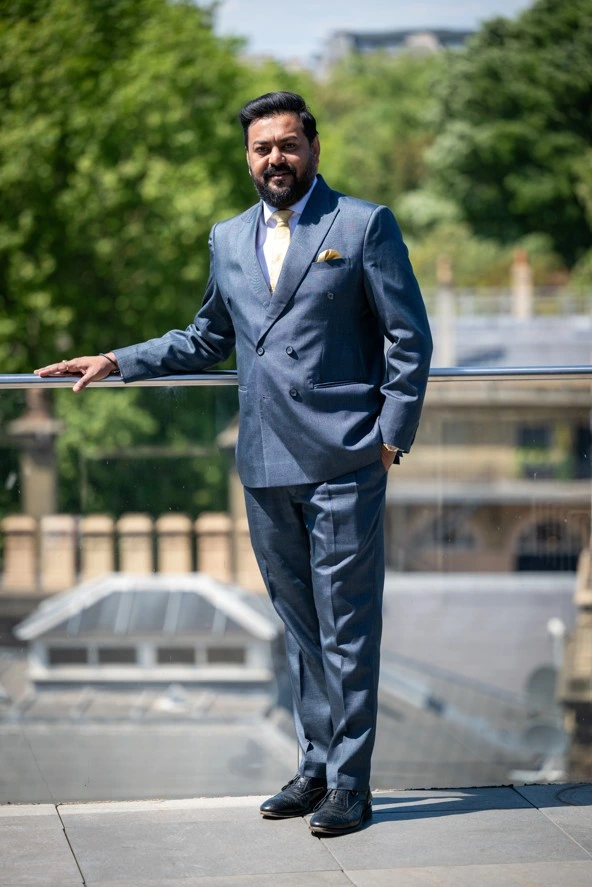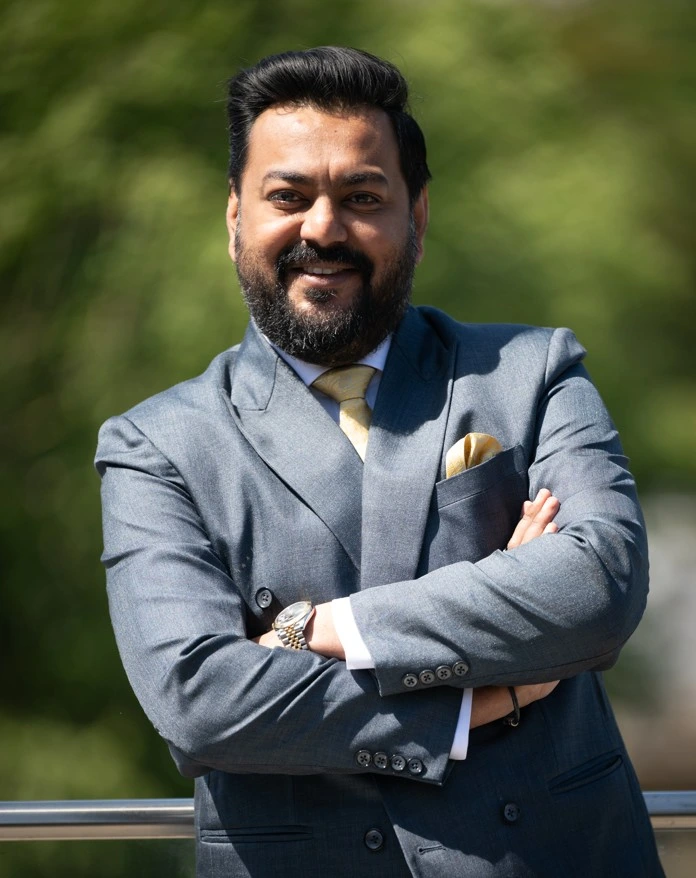UK-based Siddharth Shankar, founder of Tails Trading Group and now Global COO at Komerz, embodies the paradox of modern entrepreneurial success which is massive financial achievement coupled with an existential void. His $500 million exit from a business he built with deep passion was undoubtedly a milestone, yet it left him with a sense of emptiness alongside the success. “For 15 years, I’ve got up in the morning and I’ve had something to do,” he reflected. “And then one fine day, you get up in the morning and you’re like, ‘What do I do now?’”
The applause, accolades, and influx of supporters were real. But behind the congratulatory emails and smiling public image lay a man grappling with a lost sense of routine, purpose, and identity.
After years of being the engine behind a global operation, the quiet that followed the sale was almost disorienting. He had achieved his biggest goal, yet found himself staring into the unfamiliar stillness that followed, and then he reinvented himself. Now as the Global COO at Komerz, he is focused on revolutionizing how consumer brands expand globally by transforming fragmented supply chains into unified, high-performing networks through a omni-channel distribution model. He is especially passionate about the UK-India corridor and building systems that unlock human potential and business possibilities across borders.
View this post on Instagram
Rebellion against convention
Growing up in Mumbai in a family of government servants, Siddarth’s life path was anything but conventional. “Everything I’ve done in my career has been somewhat rebellious, trying to break the mold I witnessed growing up,” recalled the business leader, who earned a B.Tech in computer science engineering from JSS Academy of Technical Education (Noida), affiliated with Uttar Pradesh Technical University, before pursuing an MBA at Strathclyde Business School in Scotland. Despite his parents’ vision of a secure career which meant “a good job, preferably a government job,” Siddarth carved his own path, launching his first venture at 18 while still studying engineering and refusing to work for anyone else for nearly 15 years thereafter.
That spirit of independence was matched with the confidence to learn by doing. His earliest lessons in work-life balance came not from books or business school, but from home. His mother was intuitive and spontaneous, urging him to pursue his passions. His father was analytical and cautious, demanding a rationale for every choice even at age eight. This duality shaped Siddarth’s decision-making, creating a balance between instinct and structure that became essential in his entrepreneurial journey.
He grew up primarily in Mumbai, though his family has deep roots in Kanpur, Uttar Pradesh. The environment may have been risk-averse, but it gave him the tools to navigate uncertainty, a trait that would prove vital in the years to come.

The relentless grind
Siddarth launched Tails Trading Group in the UK after an MBA at Strathclyde University, driven by a mission to help British brands enter Asian markets post-Brexit.
“I started Tails with a classmate from Strathclyde University after my MBA. We were partners initially, with him bringing the idea to help British brands reach Asian shores after Brexit. I was first an investor and executive, but when he faced personal issues and had to return to China around 2019–2020, I bought him out and became the sole owner,” he shared with Global Indian.
When the pandemic hit, instead of retreating, he expanded by buying out distressed brands and rebuilding them. Tails evolved into a global powerhouse, managing 285 brands, supporting 6,500 people, and generating $6.7 billion in annual turnover.
But this growth came at a cost. “Almost everything hinged on my yes or no,” he said. “Simple processes would get stuck for days because I was constantly traveling while regular operations suffered.” Siddarth had become his own bottleneck. He wasn’t just running a business; he had become the business.
The fallacy of financial freedom
Many dream of the big exit. Few talk about the morning after. Siddarth didn’t build Tails to sell it. “It wasn’t about proving someone wrong or anything external,” he said. “The business was my baby. I realized someone else might have better potential to take it further. Perhaps my time and energy could be better spent elsewhere,” he introspected.

His decision to sell was pragmatic, not emotional. Despite the impressive valuation, he felt a strange emptiness afterward. The financial windfall, part cash and part stock, didn’t fill the vacuum. “I wasn’t content.I sold the business because I wanted the best for the business, not necessarily for myself.”
For someone who had built something from nothing and retained 100 percent equity, letting go carried its own psychological weight. There was no shareholder pressure or financial instability, just a deeply personal conviction that it was time to move on. Yet, mentally, moving on proved far more difficult.
Reclaiming balance and redefining work after wealth
Today, Siddarth works as Global COO at Komerz, serves on boards of private equity funds, and invests in sectors close to his heart in the sphere of consumer brands, supply chains, and sports. After years of building big brands, he is finally doing what his father once urged, and that is ‘getting a job’.
“After selling Tails Group, I felt somewhat lost. When my friend from one of the large agency houses approached me about joining his venture as Global COO, it offered me a new challenge. It was about finding new meaning and applying my experience in a different context rather than just playing PlayStation or golf all day.”
This shift is a reinvention. “I finally got a job” might even become his company tagline, he joked. Yet beneath the humour lies a deeper truth, and that is the desire to reconnect with work that has meaning, rhythm, and impact. He no longer needs to prove anything. Instead, he’s choosing where and how to contribute with thoughtfulness and humility.

Lessons from the other side
Siddharth’s evolution also includes a philosophical transformation. “I was not always like this,” he admitted. “If you met some of my friends and family, they’d tell you I was as hot-blooded as they come!” But carrying the weight of a $500 million business taught him humility. “When you actually carry a crown, you don’t have any reason to show it off. You stay in your lane.”
Having built a company without outside capital, run it through a global pandemic, and exited on his own terms, Siddharth now speaks from experience. The advice he offers is rooted in realism, not romanticism. He warns aspiring entrepreneurs against chasing the illusion of quick success. “Success comes to those who love their craft,” he advised, “not those chasing exits.”
The new definition of success
For Siddharth Shankar, the real success story isn’t the $500 million valuation or the global expansion. It’s the ability to step back, let go, and find purpose beyond the spreadsheet. Work-life balance, in his case, isn’t about time management apps or remote work hacks. It’s about rediscovering self-worth beyond professional validation.
“Money was never my primary motivation. I built Tails without investors or debt, and it was profitable from day one. When I sold the business, I realized that financial success alone didn’t bring true contentment. What drives me now is creating value beyond money, contributing to consumer brands, advancing supply chain systems, and exploring new domains like sports,” said the entrepreneur, who had dabbled in various ventures since his teenage years before launching Tails.

No longer chasing numbers, he now values impact, learning, and doing what genuinely excites him. The transition from sole founder to strategic executive has opened new doors of mentoring startups, building ecosystems, and investing in people and ideas that resonate with his values.
From a rebellious youngster to a seasoned business executive in global boardrooms, Siddharth Shankar’s journey is a reminder that true fulfillment isn’t found in the zeroes of a bank account, but in the meaning behind the work we choose to do.
Top Takeaways from Siddharth Shankar’s journey:
- Eliminate doubts before choosing entrepreneurship
- Love your craft deeply
- Choose work that gives you meaning, not just motion
- Reinvention matters, especially after success
- Let success be the spark for new beginnings
